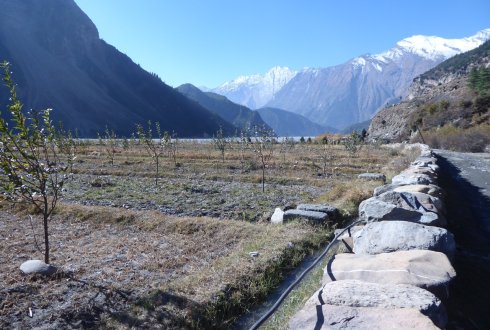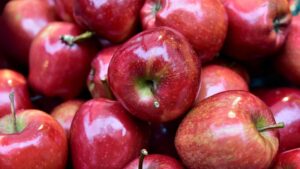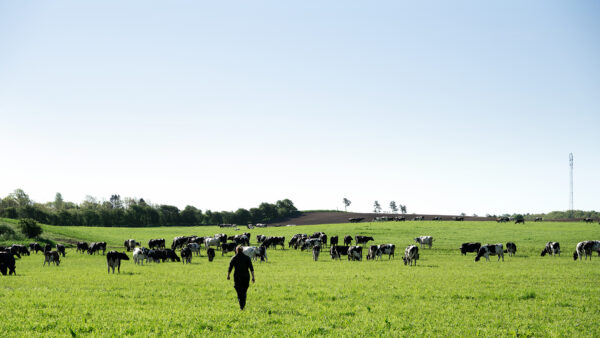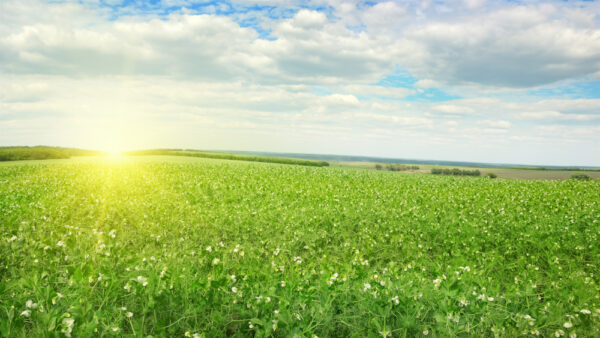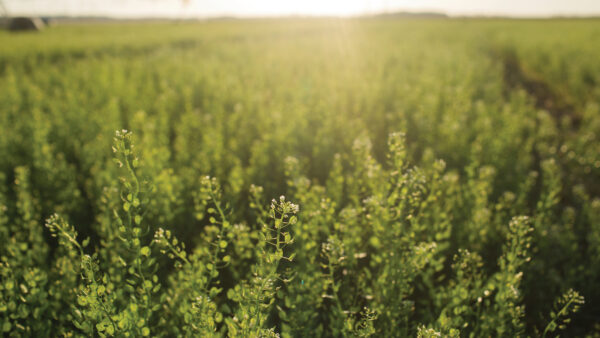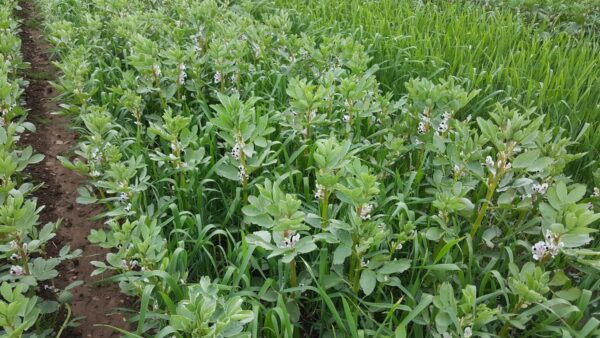Thirty-four years ago, two new apple varieties were successfully introduced to the Mustang Valley in Nepal, brought back by a student who had taken a course in Wageningen. Today, the apple sector there is worth five million euros a year, but it urgently needs revitalising with fresh knowledge and skills.
Apples are important to the economy of the Mustang Valley, situated in the Himalayas in north-western Nepal at an altitude of 2,700 to 3,000 metres. About 400 apple growers are based there, producing Red Delicious and Golden Delicious apples. These varieties are highly prized in Nepal for their taste and juiciness; in fact, tourist guides refer to the region as the apple capital of Nepal.
High-value sector
The sector has created substantial value in this region. Alongside the sale of apples themselves, an industry has developed for processing the fruit into dried slices, juice, cider, calvados, and pie. In total, this generates about five million euros annually. It’s a significant sum in the context of the Nepalese economy, and the income makes a real difference to many households in this region.
Grandfather of the apple
It all started in 1985, when Mr Buddhi Ratna Sherchan attended a course on horticulture in Wageningen, at the International Agricultural Centre, which is now the Wageningen Centre for Development Innovation, part of WUR. He visited the Dutch research station that specialises in fruit trees and managed to bring rootstocks of two varieties back to Nepal: the Red Delicious and the Golden Delicious. He also brought with him the knowledge of how to handle and propagate the apple varieties: knowledge he had gained during the course in Wageningen. The introduction of the apples was a success, and over the years it has transformed the economy. Mr Sherchan has become known in the region as the “grandfather of the apple”.
New problems
However, the Nepalese apple sector is now experiencing problems. The trees have grown old and production is decreasing. Pests and diseases are making more regular appearances, and farmers don’t know how to deal with them. Farmers also need to refresh their pruning skills, and they need solutions for the hail that regularly damages the fruit in this region. They’re also eager to try new varieties of apple trees that might be more resilient to the mountain climate, or taste even better. All of these issues need to be addressed if the past success of this country’s apple sector is to be sustained in the future.
Tailor-made training
The Mustang Valley’s apple grower association therefore asked Wageningen Centre for Development Innovation if it could help with a new training programme. To do so, Wageningen Centre for Development Innovation teamed up with Wageningen Plant Research in Randwijk and the PUM programme. A tailor-made training programme is being developed for the Nepalese apple growers to be delivered on location. Dutch companies will be involved in providing the training, including a fruit production and marketing company and a producer of apple rootstocks. The course will focus on modernising the management of the orchards, improving storage and solving issues with pests and diseases. It will also introduce new varieties and teach farmers how to test these varieties for their capacity to adapt to local conditions. A project proposal has been drafted and will be submitted to potential sponsor Nuffic to fund the training programme.
Source: Wageningen University and Research


